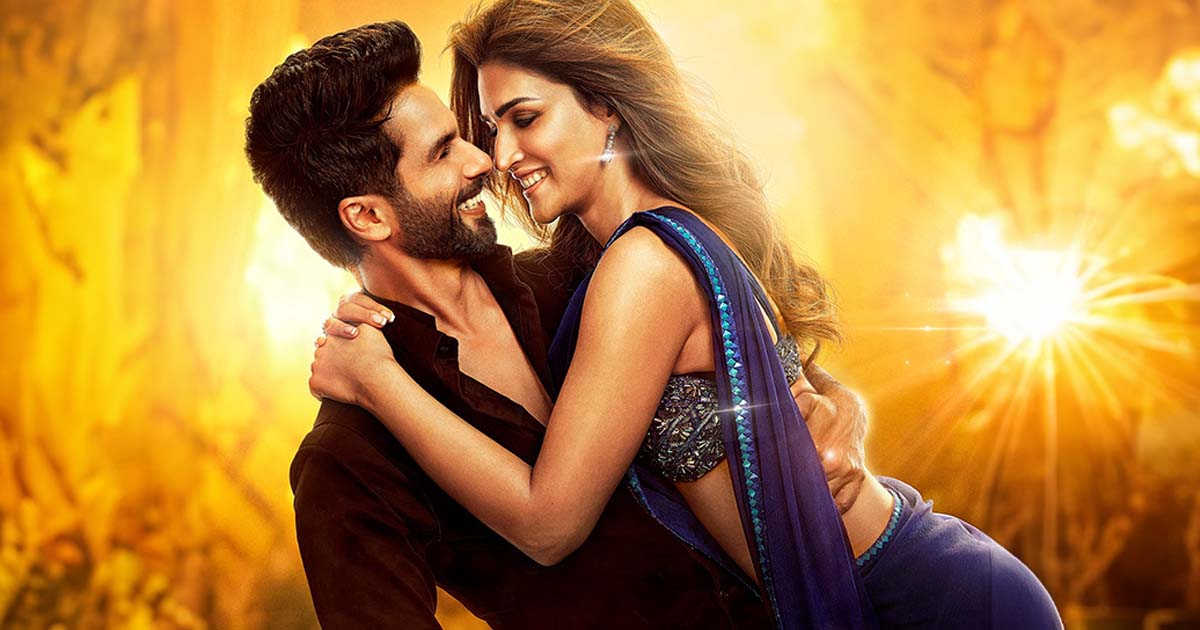CAST: Shahid Kapoor, Kriti Sanon, Dimple Kapadia, Jahnvi Kapoor, Dharmendra
DIRECTOR: Amit Joshi and Aradhana Sah
Coming soon to Prime Video
“Teri Baaton Mein Aisa Uljha Jiya,” directed by Amit Joshi and Aradhana Sah, is a film that ambitiously attempts to meld sci-fi elements with romantic and comedic undertones but, regrettably, fails to make a significant mark in any of these genres.
At the heart of this cinematic endeavor is Shahid Kapoor’s Aryan Agnihotri, a robotics programmer who falls for a robot named Sifra, played by Kriti Sanon. This premise, while intriguing on paper, unravels into a narrative quagmire marred by a lackluster script and uneven pacing.
The film struggles with its identity, teetering on the edge of multiple genres without fully committing to or excelling in any. It draws inevitable comparisons to other works in the robot-centric narrative space—be it the charm of Rajinikanth’s Chitti or the nostalgia of sitcoms like “Small Wonder” and “Karishma Ka Karishma.” Unfortunately, “Teri Baaton Mein Aisa Uljha Jiya” fails to capture the same magic or humor, often feeling like a disjointed collection of scenes rather than a cohesive story.
The performances of Shahid Kapoor and Kriti Sanon stand out as the film’s silver lining. Kapoor brings a certain levity to the film with his comedic timing and charm, albeit inconsistently. His early scenes with Dimple Kapadia’s character, Urmila, hint at a potential depth and warmth that the film could have explored further. Kriti Sanon, as the robot Sifra, delivers a commendable performance, showcasing a range of robotic mannerisms with precision. Her portrayal is visually stunning, yet her character’s development is stifled by the film’s floundering script.
The narrative’s attempt to transition from a sci-fi romance to a family entertainer in the second half introduces some light-hearted moments, but these are too few and far between to salvage the overall experience. The humor often misses the mark, leaving the audience longing for the genuine laughs that predecessors in the genre have effortlessly elicited.
Despite its ambitious setup and the undeniable talent of its lead actors, “Teri Baaton Mein Aisa Uljha Jiya” is a testament to how crucial a coherent script and focused direction are to the success of a film. The climax and a surprising cameo offer a brief respite from the preceding narrative confusion, hinting at what could have been if the film had maintained such clarity and engagement throughout.
While Shahid and Kriti’s performances provide some moments of enjoyment, they are not enough to lift the film beyond its foundational issues. “Teri Baaton Mein Aisa Uljha Jiya” serves as a missed opportunity to explore the complexities of human-robot relationships within a compelling, entertaining framework.







